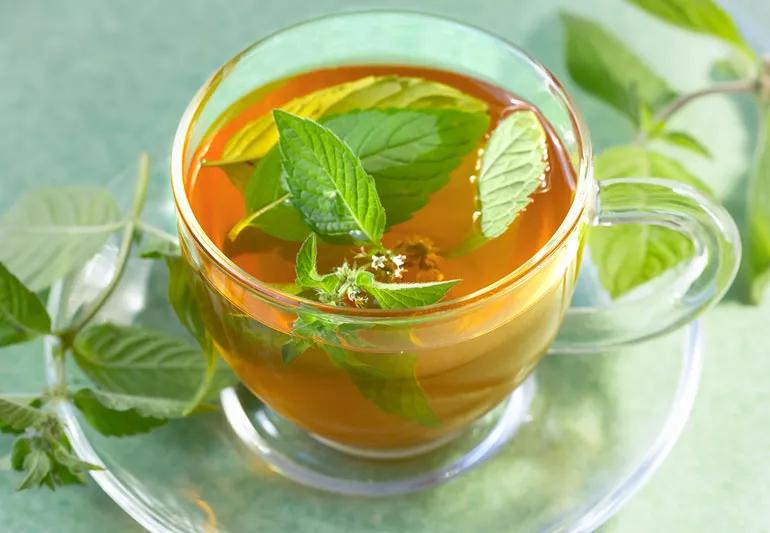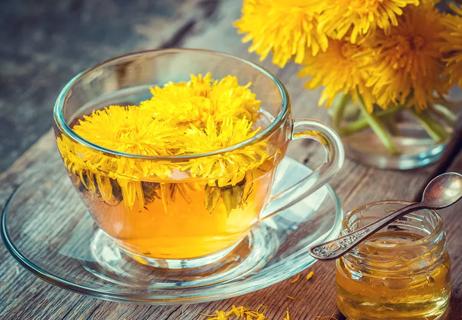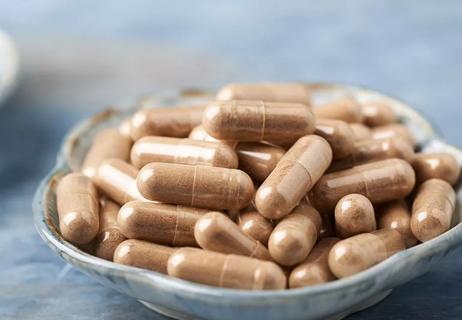This subtly minty beverage can help balance hormones and loosen stiff joints

When choosing gum or mints, deciding between peppermint and spearmint often depends on taste. Peppermint has more menthol and a highly intense flavor, while the taste of spearmint is subtle and sweeter.
Advertisement
Cleveland Clinic is a non-profit academic medical center. Advertising on our site helps support our mission. We do not endorse non-Cleveland Clinic products or services. Policy
But when choosing tea, there’s more to consider than just flavor. Different teas offer distinct health benefits — and spearmint tea brings a lot to the table.
“The best thing about tea is that it’s affordable, readily available and easy to make,” says registered dietitian Natalie Romito, RDN, LD. “That means anyone can enjoy the benefits of spearmint tea.”
Spearmint (Mentha spicata), like peppermint, is a type of mint. The concentrated forms of different kinds of mint may offer similar health benefits. But spearmint leaves have unique health benefits that make its tea stand out.
Romito shares what you need to know about your soothing cup of spearmint tea.
Spearmint tea is naturally sugar-free and doesn’t contain caffeine. It can help you stay hydrated and provides a healthy, flavorful alternative to water.
Fresh spearmint contains vitamins and vital nutrients but only in small amounts — it would be hard to get the recommended daily amount from spearmint tea alone. But spearmint tea contains antioxidants, which protect the cells from damage due to free radicals.
Spearmint tea is an excellent source of:
Advertisement
“Black tea is known to be high in antioxidants. But if you don’t like the taste of black tea, spearmint tea is a great alternative and has a comparable number of antioxidants,” Romito says. “And all teas help lower inflammation and reduce the risk of numerous diseases, including cancer, diabetes and heart disease.”
Experts haven’t studied the benefits of spearmint tea as widely as the health benefits of other types of tea. But research related to a few specific health conditions is promising.
To gain the benefits of spearmint tea, Romito says it’s important to pay attention to the amount of tea needed to get that benefit.
“A lot of the studies for spearmint tea used 5 grams of tea a day, equivalent to three or four standard tea bags,” she says. “Measure loose-leaf tea in grams using a food scale.”
What can spearmint tea help with?
As many as 5 million women in the United States live with polycystic ovary syndrome (PCOS) — a condition marked by severe hormonal imbalance. People with PCOS typically have:
“Multiple studies have shown that spearmint tea can benefit women who have a hormonal imbalance due to PCOS,” Romito says. “It helps bring testosterone levels back into the normal range, which may improve some of the symptoms associated with high testosterone.”
In one study, people with PCOS drank spearmint tea twice a day. After a month, they had lower levels of testosterone and higher levels of LH and FSH compared with participants who drank placebo tea.
But you may see results sooner than that. In another study, women with hormonal imbalances saw improvement after just five days of drinking spearmint tea.
“The benefit likely depends on how far out of normal range your numbers are,” Romito says. “If your testosterone levels are a little high, the tea may be enough. If they are very high, you may need additional medication to see improvement.”
Some women experience excessive hair growth (hirsutism). The dark, coarse hair typically grows on their face, breasts and stomach.
Approximately 5% to 10% of women of reproductive age experience hirsutism. It can be a side effect of some medications and a symptom of other conditions. But half of those who have it also have excess male hormones. The extra hormones overstimulate hair follicles.
Advertisement
“One of the symptoms of PCOS and hormonal imbalance can be excessive hair growth,” Romito shares. “But that symptom decreases and even goes away when you lower the testosterone level.”
Spearmint tea can help. In the same study that found drinking spearmint tea lowers testosterone, participants also reported reduced hirsutism.
One of the antioxidants in spearmint tea, rosmarinic acid, provides powerful benefits for joint pain and stiffness. Research shows that people with osteoarthritis who drank spearmint tea containing a high level of rosmarinic acid significantly reduced their joint pain and stiffness.
But your joints will benefit even if you don’t have access to tea high in rosmarinic acid. Study participants who drank generic spearmint tea purchased at their local supermarket found that their joint stiffness greatly improved.
While there’s limited research on spearmint tea, experts have found other possible health benefits associated with spearmint extract and essential oils.
“Essential oils and extracts can be more concentrated, which can change the impact on your body,” Romito notes. “With humans specifically, studies looking at essential oils are very different from studies focusing on teas.”
Advertisement
The research on spearmint extract and essential oils — which includes both human and animal studies — finds that those substances may help:
Additionally, spearmint may provide some of the same benefits as mint — both part of the Mentha plant family. But at this point, there isn’t enough research to be sure.
Experts find minimal risks associated with drinking spearmint tea. For most people, it’s OK to have multiple cups daily.
But some people should be careful about how much spearmint tea they drink. Children and people who are pregnant should consult their healthcare provider, as there’s no conclusive evidence that spearmint tea is safe for them. Romito also suggests limiting or avoiding spearmint tea if you have:
“Spearmint tea can worsen these conditions if you have too much or drink it too often,” Romito cautions. “But if you like spearmint tea, ask your healthcare provider if it’s safe to have it occasionally in small amounts. It’s often all about the dose.”
Advertisement
Learn more about our editorial process.
Advertisement

Catechins (antioxidants) in green tea help fight inflammation and diabetes, while improving memory and heart health

Weeds be gone! This tea contains lots of antioxidants and may help reduce inflammation

Flavonoids in black tea are good for your health, helping prevent strokes and heart disease

Research is limited, but there’s evidence the fermented tea offers some health benefits

The energy drink staple packs a caffeine punch, but caution is recommended

From antioxidants to anti-inflammatory effects, a dietitian explains all

There’s a perfect tea option for every condition

Study reveals hot tea can raise esophageal cancer risk

Wearing a scarf, adjusting your outdoor activities and following your asthma treatment plan can help limit breathing problems

Your diet in the weeks, days and hours ahead of your race can power you to the finish line

When someone guilt trips you, they’re using emotionally manipulative behavior to try to get you to act a certain way